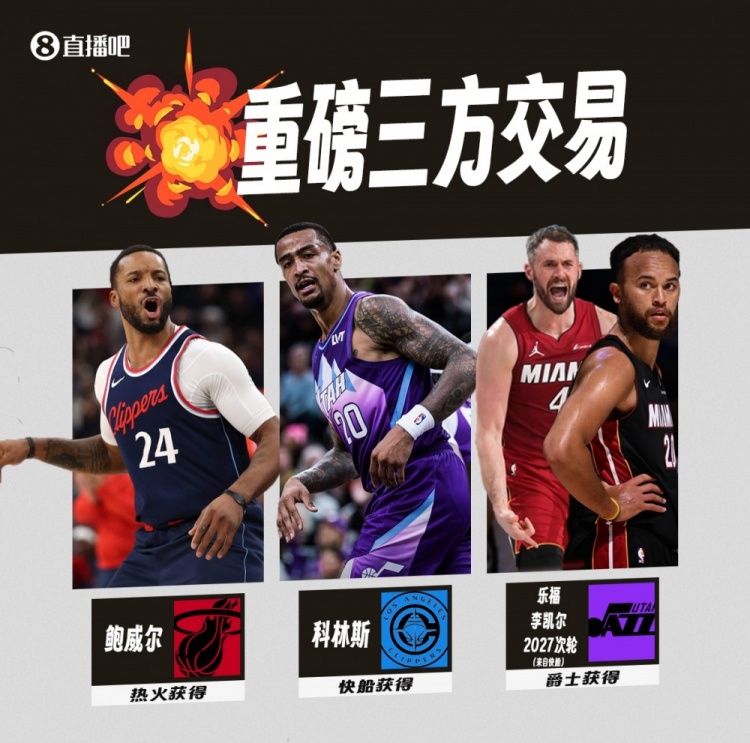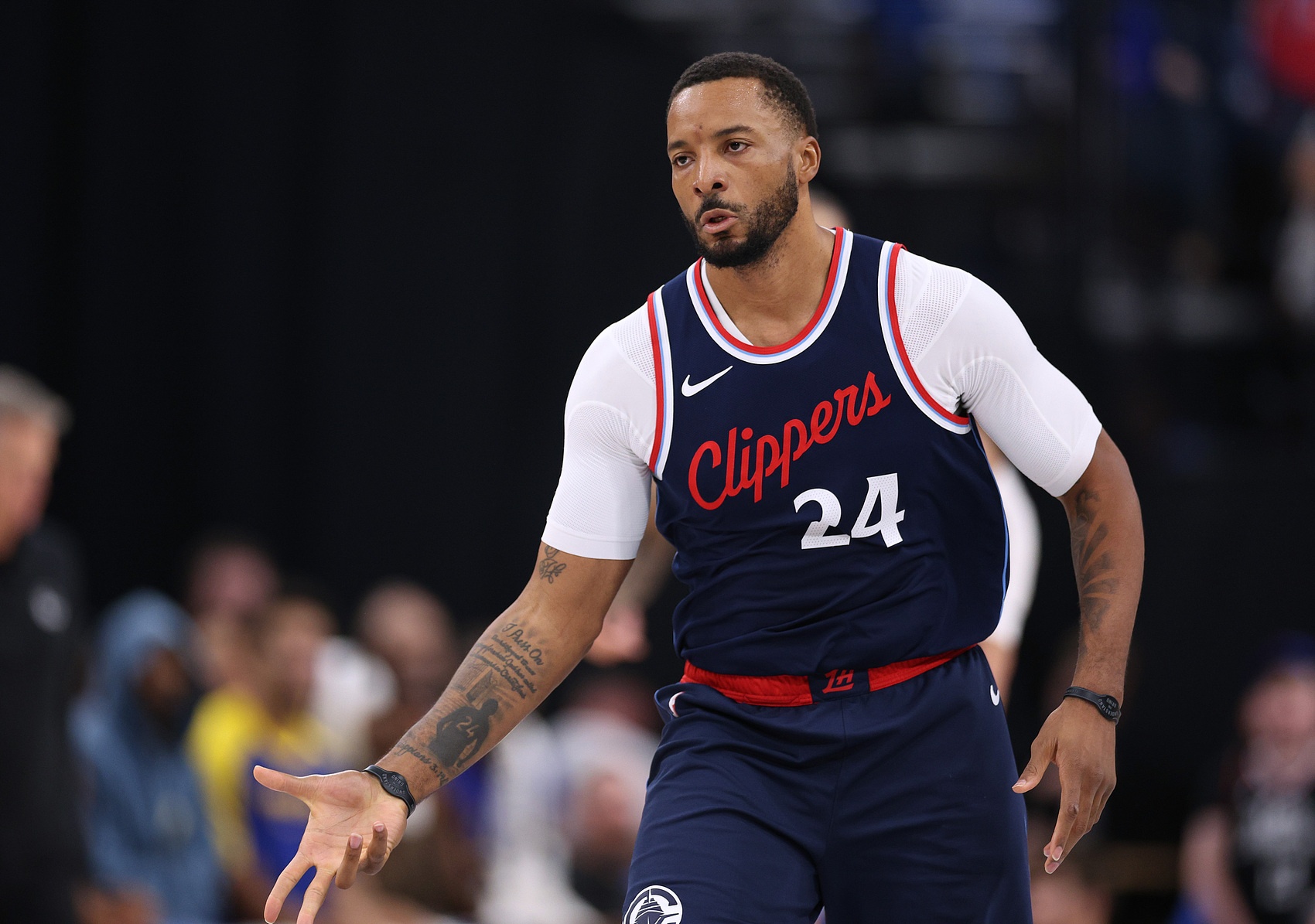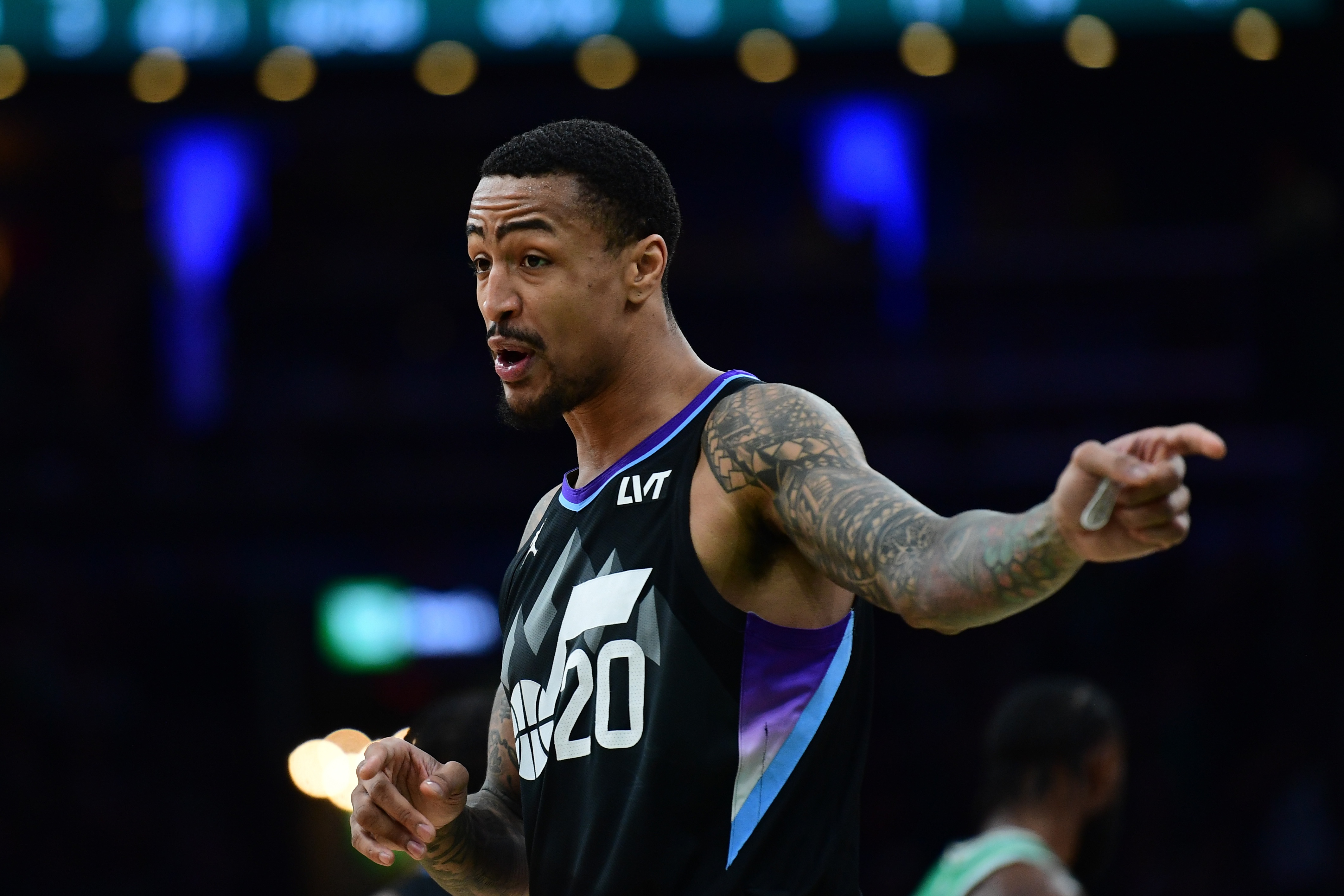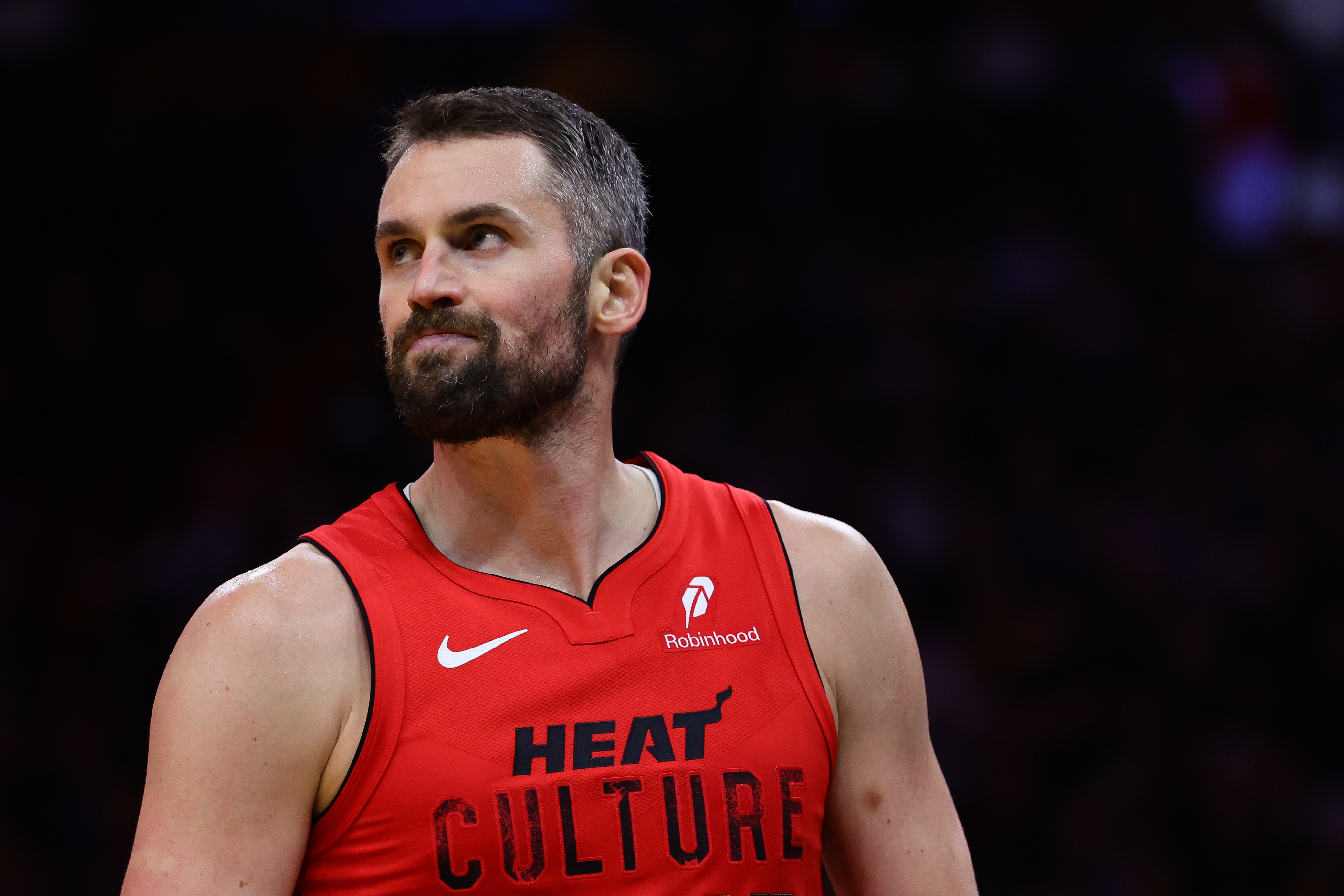
(The original article was published on July 8, and the author is Zach Harper on The Athletic website. The content of the article does not represent the translator's views)
With the advancement of the trading market in early July, the NBA ushered in another major tripartite transaction. The Jazz sent John Collins to the Clippers, the Clippers traded Powell to the Heat, and the Heat sent Love and Lee Kyle to the Jazz, and the Jazz will also receive a second-round draft pick for the 2027 Clippers. ESPN first reported the deal, and subsequent league sources confirmed the deal to The Athletic.
The operations of two of the teams are reasonable, but the intervention of the third-party teams makes me a little confused. Now let's pick up the red pen for rating analysis and see if we can figure out the logic of this deal together:

The Heat have won Powell
Rating: A-
If the Heat get Powell when playing for the Clippers this season, this will be a major reinforcement. That version of Powell is a quasi-All-Star level, and I think he should have replaced Harden as the All-Star for the Clippers. At that time, Powell scored phenomenal scores, averaging 21.8 points per game, setting a career high, shooting percentage of 48.4%/three-point shooting percentage of 41.8%/free throw shooting percentage of 80.4%. This is the data after Powell suffered multiple injuries such as hamstrings in the second half of the season, causing his condition to decline.
Powell before the All-Star Weekend was more destructive. In the first 45 games of the season, he averaged 24.2 points per game, with a shooting percentage of 49.6%/42.8%/81.9% in three events. The 32-year-old guard has taken offensive performance to a whole new level, so any offensive firepower that approaches this level will have a huge impact on the Heat (21st offensive efficiency league this season). Part of the Heat's offensive difficulties stemmed from Butler's departure in the first half of the season. After he officially ended his Heat's career, the team's offensive efficiency slightly improved to 19th in the league, but overall, there is still a lack of stable and efficient scoring methods.
And this is Powell's specialty, he can efficiently complete the catch and shoot, and is also good at attacking defenders on the move. Whether it is arranging singles tactics, asking him to use cover to run, hand-hand cooperation, or using it as a space restraint point, he is at ease. The Heat can rely entirely on him to share the scoring pressure of Taylor Herro and add new weapons to Adebayo's duo transfer tactics. The only key is that Powell needs to stay healthy, and he has missed at least 22 games in three of the past four seasons. Since Powell is about to enter the contract year, it will be of great benefit to both sides if he can replicate his performance in the Clippers this season.

The Clippers received John Collins rating: C+
Must admit that this part of the deal is a bit difficult for me to understand. I originally admired the chemistry that Powell brought to the Clippers very much, and believed that the team was inseparable from the firepower support he provided throughout the season. For most teams, we should not preset injuries, and we should usually plan the season based on the health of all members. But the situation for the Clippers and Leonard obviously cannot be so optimistic. You must take into account the possibility of Leonard's long-term absence. I even proposed a theory: in order to keep Leonard healthy and enter the playoffs, he should be allowed to start from January of the following year, and this strategy has indeed achieved certain results this season.
Losing Powell's output on the offensive end will hit the Clippers. Can getting Collins make up for this loss? It's possible! Collins is a qualified No. 4 scorer, and his career three-point shooting percentage is enough to prove that he can open up the space. The Clippers will also get an all-match threat when he plays a pick-and-roll with Harden or Leonard. The offensive dimension improvement brought by Collins is indeed something Powell cannot provide.
But the problem still exists. Will this trade make the penalty area guarded by Zubac? After introducing Lopez as a substitute center, do the Clippers really need to continue to increase their height? Should the Clippers return to the traditional power forward configuration, or should they continue Coach Tyron Lu's strategy of using mobile wings for defensive flexibility? Collins is not a defensive player, and having him on the defensive end at the same time as Harden can be tricky.
Like Powell, Collins' contract is about to expire, so this is not a long-term plan. The 27-year-old Collins is just a one-year lease, and the Clippers can use this to evaluate the effect. The Clippers do get younger, more athletic assets, but I always think the guard's firepower output is more important than the power forward. Unless Bogdan Bogdanovic can completely fill Powell's vacancy, the deal is risky to the Clippers and may even be a failure.

Jazz received the second round pick from Lee Kyle, Love and the 2027 Clippers: C+
Two years ago, the Jazz only paid one second round pick and Rudy Guy for Collins. Now they exchanged Collins for the future second round pick, Love and Lee Kyle. After holding Collins for two seasons, the deal was a break-even. This is logical, given the Jazz's strategic goals. While Jazz management can talk about competitiveness in a high profile (which helps sell tickets), the Jazz is destined to be bad again next season. After the plan to compete for Cooper Flag this year failed, the Jazz has turned their goal to the talented 2026 draft, when Brigham Young's talented freshman AJ Di Bansa will become the top pick.
I speculate that Love will reach a buyout agreement with the Jazz and will not play for the team. For Love, who is at this stage of his career, joining the rebuilding team makes no sense for both sides. As for Lee Kyle, the Jazz may try to get him into the rotation and look for trading opportunities before the trade deadline. Lee Kyle is a quality role player that many teams are eager to get, and the Jazz can even turn it around before the season begins.. Although Collins' existence is not enough to substantially destroy the Jazz's plan of making bad plans, the team is obviously unwilling to take any risks and is determined to fully implement the strategy of making bad plans.
Original text: Zach Harper
Compiled by: Li Taibai
bdkq 7m